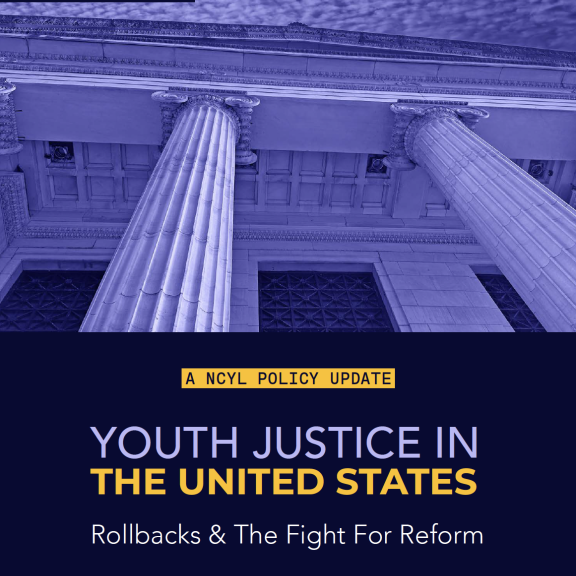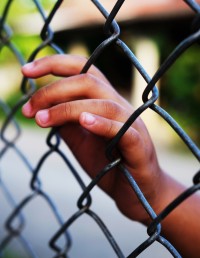New NCYL report warns of dangerous backslide in youth justice reforms
Issue brief highlights systemic abuse, urges deeper investment in community-based alternatives
After more than two decades of steady progress in reducing youth incarceration across the U.S., a new report from the National Center for Youth Law (NCYL) warns that states are reversing course, reviving harmful and costly detention policies that devastate young people and their communities.
The issue brief, “Youth Justice in the United States: Rollbacks & The Fight For Reform,” documents mounting evidence of abuse inside youth jails and detention centers across the country — from sexual assault scandals in California and Illinois, to solitary confinement in North Carolina, to children being maced and denied education in Louisiana’s adult jails — and includes recommendations for reforms that prioritize young people's growth and well-being and hold systems accountable.
“Too many young people who need support are instead met with cruelty,” said Frankie Guzman, Managing Director of Youth Justice & Equity at NCYL. “We know from decades of data that detention increases trauma and worsens long-term outcomes. Yet states are turning their backs on proven, community-based approaches that actually encourage healthy youth development and improve public safety.”
Dangerous Rollbacks
The report details how policymakers in states such as Tennessee, Florida, and Louisiana are pushing punitive measures and are building new facilities, expanding bed capacity, and prosecuting children as adults even as youth crime remains near historic lows. These policies are deepening racial disparities: in 2023, Black youth were six times more likely to be detained than their white peers, the highest disparity on record.
The brief lays out a bold vision for reinvigorating reform, with specific calls to action for policymakers, advocates, philanthropic entities, and members of the news media. Key elements of these reforms include:
- Replace punishment with health and development as the guiding principles of youth justice.
- Invest in communities, not cages, by redirecting resources to local youth-serving organizations.
- Center youth voices and lived experience in shaping policy.
- Hold systems accountable for positive outcomes, not recidivism statistics.
The brief highlights promising examples from California, Colorado, and Illinois, where state leaders are shifting resources toward restorative justice, trauma-informed care, and community-based supports.
“We've seen what works and we know what young people and communities need,” Guzman said. “We can't allow fear and misinformation to undo or reverse progress. Every child deserves support, opportunity, and a path to thrive.”
Read the full issue brief here.
###
The National Center for Youth Law centers youth through research, community collaboration, impact litigation, and policy advocacy that fundamentally transforms our nation's approach to education, health, immigration, foster care, and youth justice. Our vision is a world in which every child thrives and has a full and fair opportunity to achieve the future they envision for themselves.



